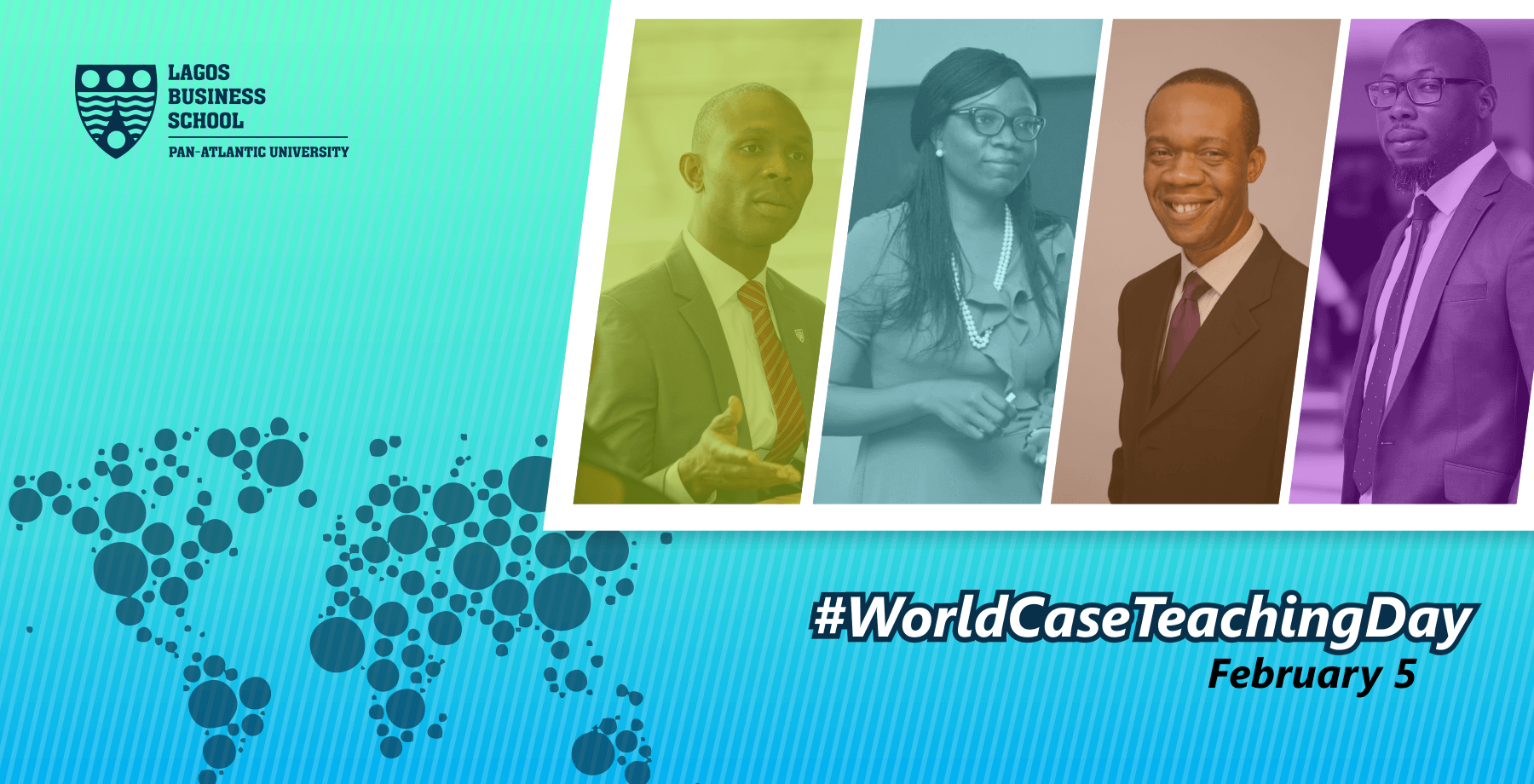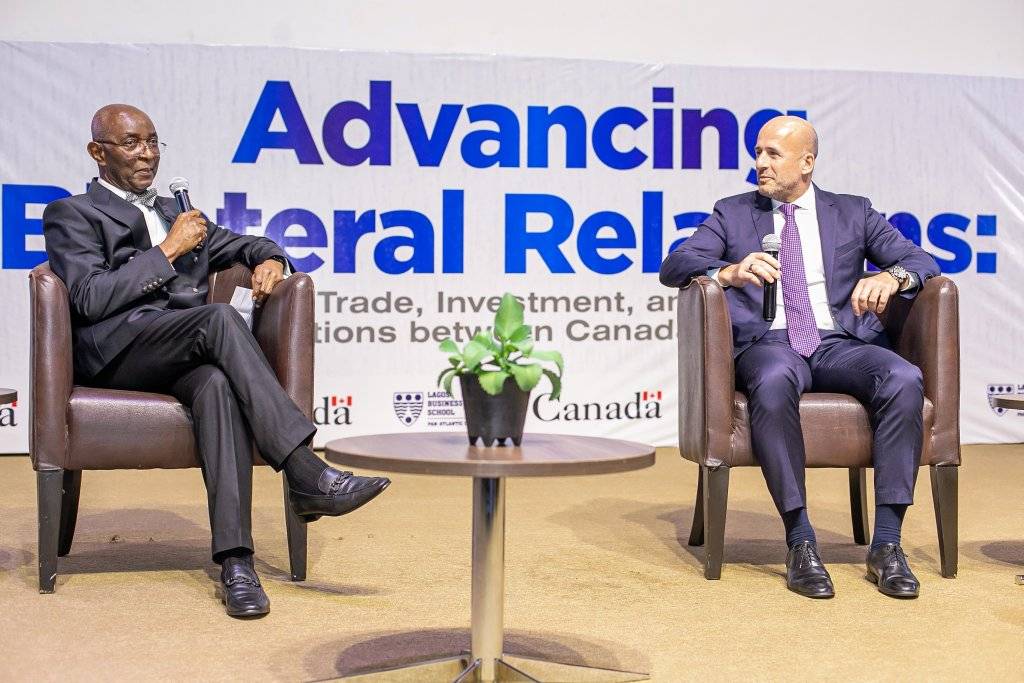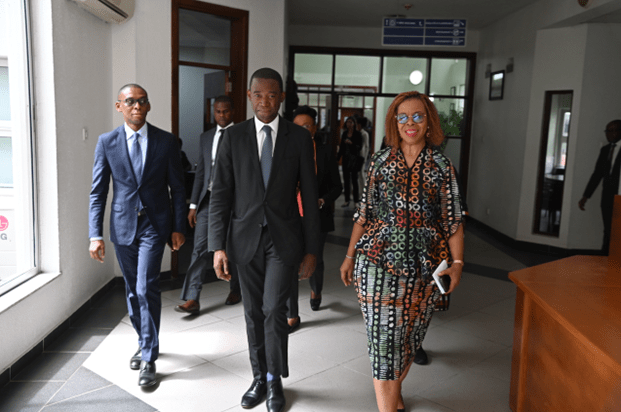Case studies are a teaching method that allows business school students analyse real business problems and proffer solutions like managers and executives would.
At Lagos Business School (LBS), the case study pedagogy sits at the core of the education we offer. We research African companies, proffer solutions based on first-hand knowledge of the problems and the nuances required to solve challenges faced by these companies. Our faculty members have won case awards within and outside Africa, the most recent being Marketing faculty, Dr Uchenna Uzo’s case, ‘Indomie Noodles in Africa: Lessons on Digital and Cultural Branding’ which emerged the Best Teaching Case at the 2018 Academy of International Business (AIB) Conference held in Rwanda.
As business schools across the world celebrate the first edition of the World Case Teaching today, February 5, 2019, LBS faculty and students share unique perspectives on case studies and their impact on management education.
Dean, Prof Enase Okonedo has, in several interviews, expressed that case studies are how LBS provides homegrown solutions to challenges faced by African businesses. “As a manager, you need to persuade and convince the people you work with to follow your ideology, so case discussions allow participants to discuss and convince other participants about their points of view. Managers are developed by practicalising, it is not the same as reading about management. We want managers to become effective managers by going through a real learning experience. I am a strong advocate of this method because it is not a passive but an engaging method for both participant and facilitator.”
Dr Uchenna Uzo believes this style of teaching has aided LBS participants to have a rich transformational experience.
“The case study method ties in to our mission in creating and transmitting management and business knowledge. Our learning goes beyond acquiring knowledge and skills to advance their careers but also to be better individuals in the society. The case-based approach opens participants to new ways of learning that help strengthen their analytical skills, time management skills, and capacity for teamwork. Furthermore, the process allows participants to be more emotionally intelligent, as they openly discuss their opinions and views.”
MBA 16 candidate, Arinze Modebe was part of the team that represented the School at the 6th annual Yale School of Management Integrated Leadership Case Competition in April. He said “, My critical thinking and problem-solving skills have improved based on the case study teaching methodology. Initially, it was unfamiliar to me because it is totally different from how I have been taught in the past. It also seemed like a lot of work because it brings together a lot of information from the perspective of managers, giving a holistic view of a company’s activities. I value the case contents and diversity from different company departments and economic sectors. The information on the cases are very informative and educational, helping you to understand the problem managers face daily and how they tried to solve those problems.”
For Executive MBA 22 graduate, Ganiu Odewale, who is back at his workplace applying knowledge gained from cases to real life problems, the most impactful case study is Family Feud – Andersen vs Andersen which provided an insight into the legacy of accounting firm, Arthur Andersen and how to navigate high stake problems/decisions. “Thanks to the case study methodology taught at Lagos Business School, I now have a different and better approach to solving both simple and complex business/ life problems. There is a better approach to our African expansion programme at work because we actively apply decision-making skills gained from cases. I enjoyed reading the cases because they provide new information on different countries, industries, people, management styles, problems and solutions. I gained insights from the different proposals and suggestions made by classmates from diverse work experiences and backgrounds. The ultimate value derived is the decision-making practice i.e. cases provided the avenue to practice critical thinking and decision-making.”
Dr Yetunde Anibaba teaches Analysis of Business Problems here at LBS and cases are a crucial part of this area of study, hence the growing number of cases she has to her credit.
“There are at least two reasons why I love to teach using the case study method. For one thing, a good case gives students the opportunity to immerse themselves in the world of the protagonist and by a good case, I mean a case that is not only well written in terms of the clarity and richness of the narrative form but moreso, how well it holds the attention of the class from the beginning to the end. When students have been assigned a grade case, what happens is that they come to class energised. The facility doesn’t have to do a lot to get students to contribute and engage their thinking skills. There is already motivation to address/solve those problems. It is actually gratifying when in the course of the discussion, students have that aha moment where they are able to grasp an important point or principle. What it means is that you know they have learned that concept or principle for life. And because the stories are very appealing, they don’t forget it because they’re able to relate the story with the principle and are therefore able to to apply it to their world of work and personal lives.”




